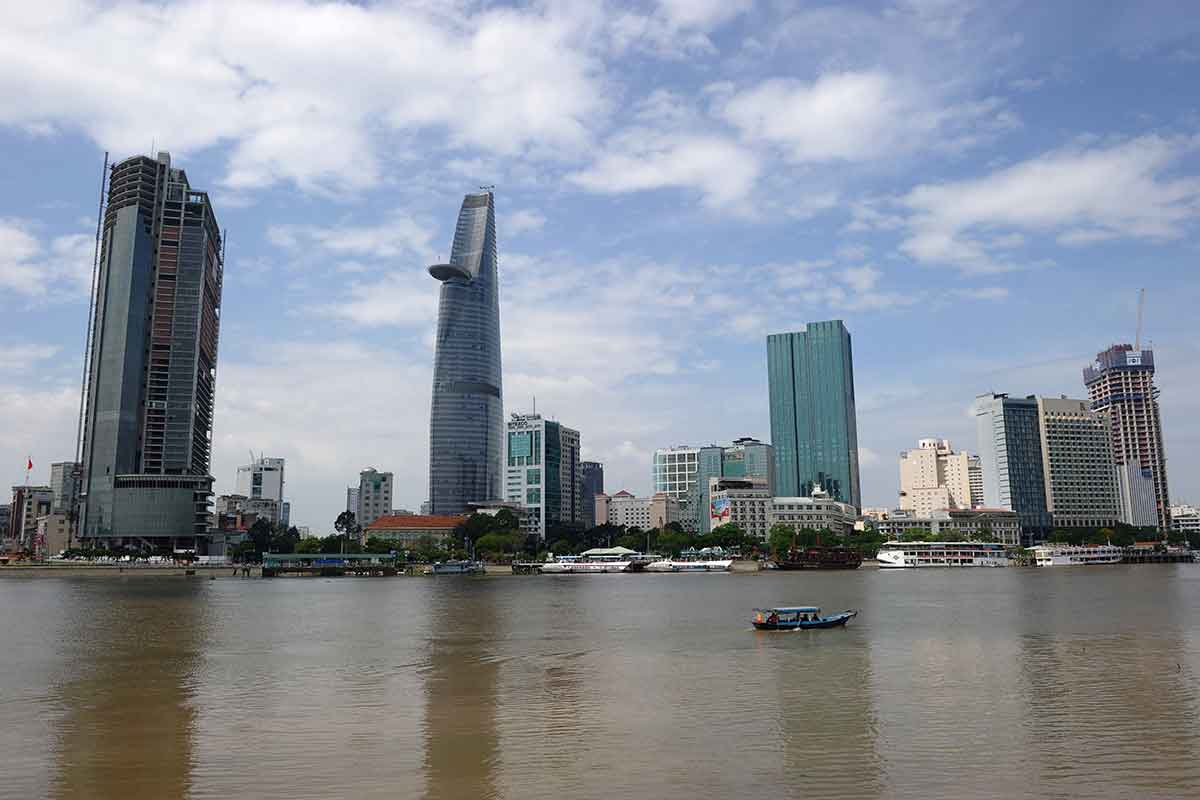As ASEAN moves into the future, the regional bloc is faced with two trends – digitalisation and urbanisation. While urbanisation can be seen as a positive thing, there are also possible spill over effects if not mitigated properly. With technology evolving very rapidly, many countries in Southeast Asia are looking at it as a solution to the various problems associated with urbanisation.
Over the past decade, most of ASEAN’s growth has been and expected to continue to be driven by urban centres. It is forecasted that by 2030, the 90 million people expected to urbanise cities and “middleweight” cities of between 200,000 and two million residents will drive 40 percent of the region’s growth. With such rapid urbanisation this could have implications for important issues such as congestion, water and air quality, urban-rural divide, housing and more.
Technology along with non-technological means has been identified as one of the solutions to resolve such issues. Technology and digital solutions can be utilised to enhance the quality and accessibility of services, thereby improving people’s lives as well as creating new opportunities.
The uses of technological solutions to transform cities – known as smart cities – has already been in the works in Southeast Asia. Although Singapore leads the charge, other countries like Malaysia, Vietnam, Thailand and Indonesia have had similar ambitions for cities in their respective countries. The ASEAN Smart Cities Network (ASCN) launched at the 32nd ASEAN Summit earlier this year is an effort that works to complement the individual developments of these smart city projects and to harmonise such efforts at a regional level.
Thus far, 26 pilot cities in ASEAN member states have been identified for the network and selection was not limited to just the capital cities of these respective countries. The inclusion of non-capital cities signals a forward-thinking approach towards urban development as these cities would be able to benefit from more advanced capital cities within the network.
 Source: ASEAN Smart Cities Network
Source: ASEAN Smart Cities Network
ASEAN Smart Cities Framework
At the 33rd ASEAN Summit last week, Singapore Prime Minister Lee Hsien Loong reiterated ASEAN’s commitment to its smart cities. Lee Hsien Loong also announced that ASEAN has adopted the ASEAN Smart Cities Framework, which will serve as a non-binding guide for smart cities development in ASEAN member states.
The ASEAN Smart Cities Framework outlined three strategic outcomes for smart cities in the region – establishing a competitive economy, building a sustainable environment and achieving high quality of life.
The framework also sets out ways to achieve these strategic outcomes. It (the framework) recommends two key urban systems that governments should focus on to manage, balance and coordinate the various domains and priorities of a city. The first one is the “Integrated Master Planning and Development” system. This system involves drawing up of long-term plans and blueprints so that cities can meet their needs in a sustainable manner. According to the framework, “The implicit principles of this system include: adopting a long-term perspective; productive decision-making; built-in flexibility; effective execution and implementation; systematic innovation; as well as robust monitoring and evaluation.”
The other system is “Dynamic and Adaptive Urban Governance”. This involves engaging diverse and capable stakeholders such as citizens, government officials and businesses, including local enterprises and start-ups, in decision making and oversight of how the city plans, utilises and manages its resources.
ASEAN’s plans for a smart cities network has also received widespread support from countries outside the bloc. For example, in March this year Australia announced a US$22 million “ASEAN-Australia Smart Cities Initiative”. At the recent summit in Singapore, United States (US) Vice President Mike Pence offered the support of Trump’s administration for digital and urban infrastructure development in the region by announcing the new “US-ASEAN Smart Cities Partnership”.
“This effort will spur renewed American investment in the region’s digital infrastructure, advancing prosperity and security in Southeast Asia,” Pence said.
When the idea of a smart cities network was first raised, many were sceptical of the plan. However, with the new framework in place, it looks like the ASCN could one day become a reality.
Related articles:
Building a network of smart cities in ASEAN
Welcome to the future: ASEAN Smart Cities Network
